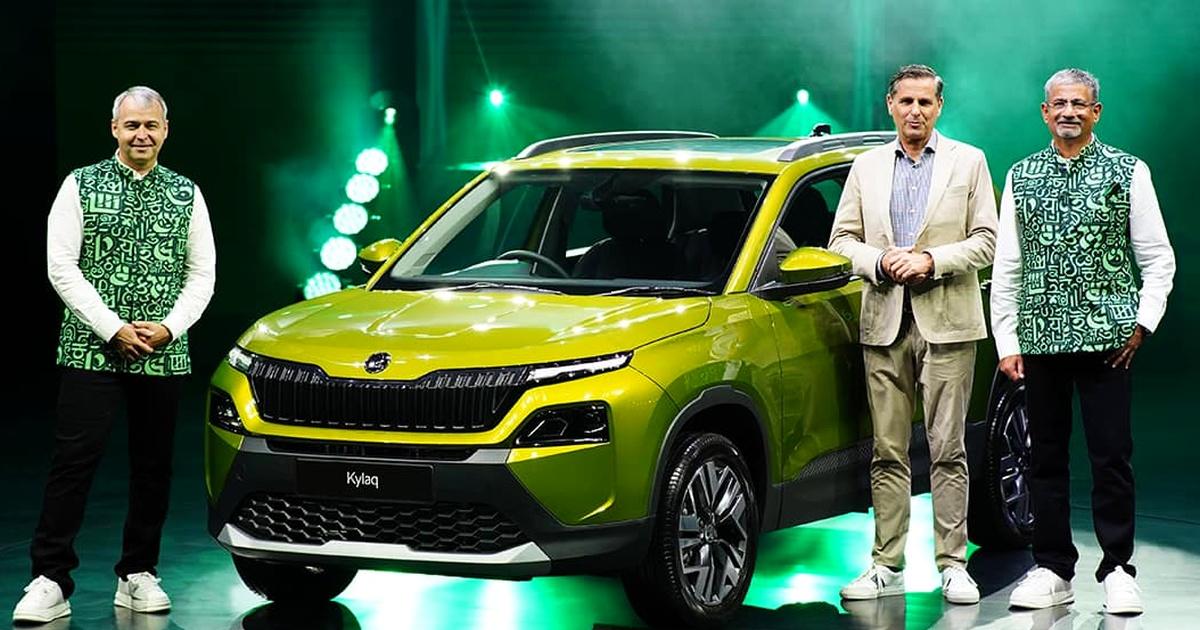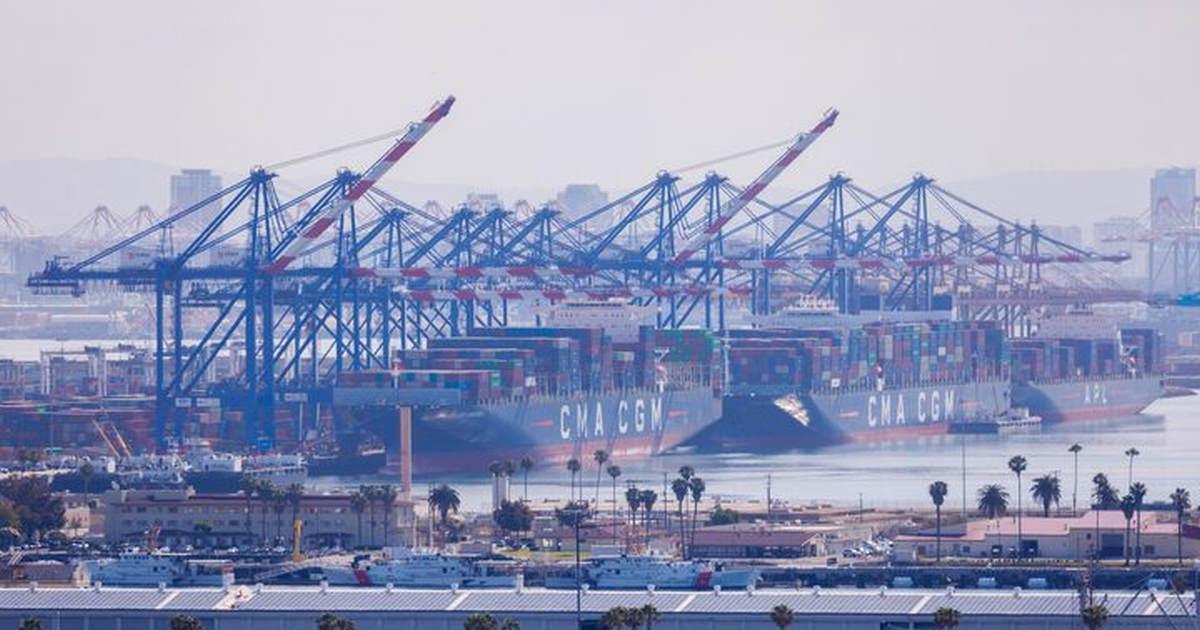‘Growth will definitely continue to come most from the sub-four-metre SUV segment, primarily because that is where the heart of economy and affordability is. Naturally, that will keep pushing the share of that segment (in overall PV sales) higher.’

IMAGE: (From left) Skoda Auto Volkswagen India Brand Director, Petr Janeba, Chairman & CEO Skoda Auto, Klaus Zellmer, and MD & CEO Skoda Auto Volkswagen India, Piyush Arora, during the launch of Skoda Kylaq, in Mumbai. All photographs: Kind courtesy Skoda/Facebook
The sub-four-metre SUV segment will continue to see the fastest growth following the recent GST rate cut as that is where the heart of the Indian economy and affordability lies, said Ashish Gupta, Skoda Auto India brand director.
The share of the small SUV segment in overall passenger vehicle (PV) sales was already the largest even before the cut in the Goods and Services Tax, accounting for 26-28 per cent of the car market.
“With the GST rate cuts, the biggest advantage is in the sub-4-metre segment,” he told Business Standard in an interview in New Delhi.
“The momentum provided by GST rate cuts will continue to November, December, and future years as well,” he said, adding that growth is increasingly driven by consumers in Tier-11 and Tier-III cities, where most of the country’s economic expansion is also taking place.
“Growth will definitely continue to come most from the sub-four-metre SUV segment, primarily because that is where the heart of economy and affordability is. Naturally, that will keep pushing the share of that segment (in overall PV sales) higher.”
Under the new GST regime that came into effect from September 22, small cars (less than four metres in length with engines up to 1,200cc for petrol and 1,500cc for diesel) attract 18 per cent GST, down from 29-31 per cent earlier, including cess.

Skoda India on October 17 announced the return of its performance sedan Octavia RS as a limited-run import, with only 100 units brought in. Pre-bookings began on October 6 and deliveries commenced from Thursday.
“This has been a landmark year for us. Last year, we ended with sales of about 36,000 units. In the first 10 months of this year, we have already sold about 62,000 units, which is almost double the number.
“We have doubled our market share. We have become the seventh-largest car seller in India, a significant jump from 11th position before. It has been helped by Kylaq, which has been a success for us,” he said.
Skoda Kylaq — a sub-four-metre SUV — launched with bookings opening on December 2 last year and deliveries starting from January 27 this year and has emerged as a key volume driver.
After the GST rate cut, Kylaq starts at Rs 7.54 lakh (ex-showroom). Gupta said the company has a market share of 1.8-1.9 per cent, which it aims to maintain while expanding its network to 380 touchpoints in 200 cities by the end of this year, up from 318 outlets in 180 cities.
Gupta said Skoda is not planning to introduce imported fully built units (FBUs) in India as the electric vehicle (EV) market has grown slower than anticipated.
“Having seen the experience of those segments in the Indian market, I am a little bit apprehensive of getting our EV FBUs into India, purely because of the price points at which they would have to be sold,” he said.
Gupta emphasised that electric vehicles remain the future for the company, but success will depend on developing long-term, localised products.
Earlier, brand director Petr Janeba had indicated that Skoda planned to “test the waters” by importing completely built electric cars before starting local assembly by around 2027.
Gupta, however, said timelines for launching a locally produced EV are still under discussion.
Feature Presentation: Rajesh Alva/Rediff




